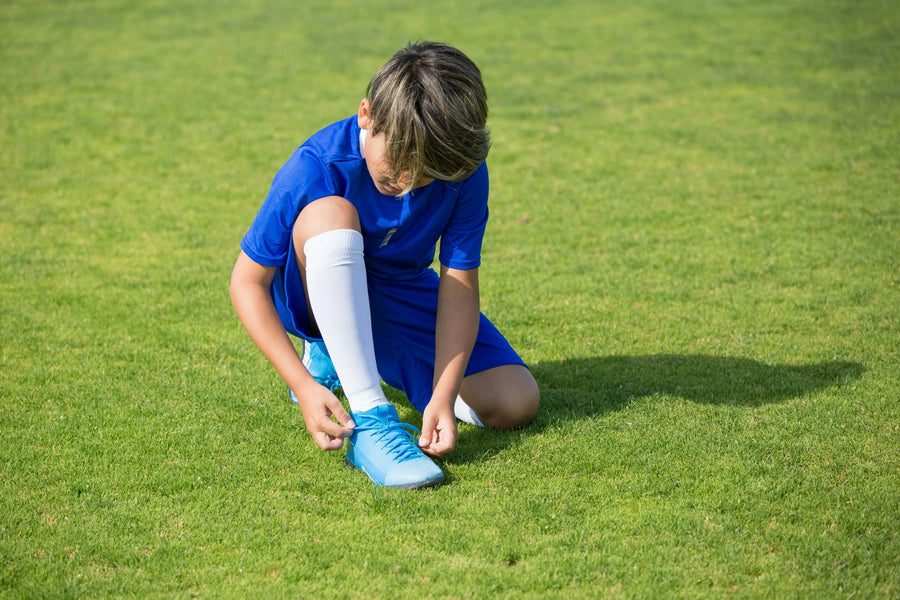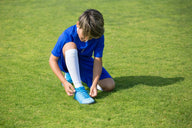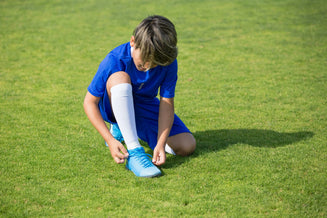In the ever-changing realm of youth sports, injuries are an inevitable aspect of participation. In their athletic pursuits, young athletes often find themselves sidelined at some point due to minor sprains, pulled muscles, or more serious injuries. Being hurt can present serious emotional difficulties in addition to physical pain for many of these young athletes. It could completely undermine their self-assurance, leaving them feeling discouraged, frustrated, and insecure about their skills. Notwithstanding the challenges presented by injuries, it is entirely possible to assist young athletes in overcoming their setbacks and coming out stronger than before, provided they have access to the appropriate support systems and techniques. So, here’s how to make that happen in the best and most effective way possible.
Acknowledge the Injury
Recognizing the injury itself is the first step towards helping sports kids recover and become more confident. Young athletes must receive comprehensive information about the type and severity of their injury, as well as how it will affect their ability to continue competing in sports. Coaches, parents, and medical professionals all play a critical role in helping young athletes accept the need for proper rest and recovery and help them come to terms with their injury by being open and honest about it. This degree of comprehension helps sports kids to shift their focus from frustration or disappointment to healing and recovery. It also lays the groundwork for a positive mindset and helps everyone
avoid injuries in the future.
Maintain a Positive Routine
Sports children frequently experience injury, which throws off their routine of practice and competition and makes them feel lost and unconnected to their love of the game. Helping them create a new routine that keeps their daily lives somewhat structured and consistent is crucial to easing these feelings of disorientation. This could mean switching up your training routine, looking into cross-training opportunities in different sports or hobbies, or setting aside time for mental and emotional training methods like mindfulness or visualization. Sports kids can maintain a positive outlook and a sense of connection to their sport by staying actively involved in their recovery process. These factors are crucial in boosting confidence during this difficult time.
Set Realistic Goals
Athletes must set reasonable objectives during their recuperation that match their present capabilities and constraints. Rather than focusing only on the end goal of getting back into competitive sports, it's better to help them set more manageable goals along the way that represent progress. These small goals—whether they involve finding
professional denture repair near me, learning a new skill, increasing strength, or regaining range of motion—provide a measurable sense of motivation and success, which boosts resilience and confidence in the face of difficulty. Young athletes are given the ability to concentrate on the here and now, celebrate their accomplishments along the way, and keep a positive outlook on the future by taking the recovery process and breaking it down into manageable segments.
Focus on What Can Be Controlled
Sports kids who sustain injuries frequently experience a loss of control due to the uncertainty surrounding their recovery timetable and how this will affect their future athletic goals. It is crucial to support them in concentrating on what they can control—their perspective and attitude toward their injury and recovery process—to combat feelings of powerlessness. Sports kids can regain a sense of agency and empowerment over their circumstances by taking a proactive and positive approach that emphasizes traits like resilience, patience, and perseverance. This will boost their confidence and self-belief. Furthermore, developing a positive outlook acts as a potent coping strategy, allowing young athletes to overcome obstacles with poise and fortitude and eventually grow into stronger, more resilient people.
Embrace the Learning Opportunity
While injuries certainly provide a great deal of difficulties, they also offer priceless chances for personal and professional development. Sports kids who are encouraged to view their injury as a teaching moment are more likely to have a growth-oriented mindset, in which failures are seen as chances to learn new things that will benefit them in their athletic endeavors and beyond. Every challenge offers a different chance for both personal and athletic growth, whether that means learning more about injury prevention and rehabilitation techniques, getting a better grasp of their bodies and limitations, or building resilience and mental toughness. Young athletes can better understand and gain purpose from their experiences by reinterpreting setbacks as opportunities for growth, and this helps them feel more confident and driven to conquer challenges.
Foster a Supportive Environment
The existence of a supportive environment that provides encouragement, understanding, and empathy is arguably one of the most important factors in helping sports kids develop confidence during times of injury. Parents, teammates, coaches, and medical professionals are all crucial in
supporting young athletes during their careers, as well as when it comes to helping them receive the emotional and practical support they need as they heal. Sports kids can feel appreciated, supported, and empowered to overcome obstacles and reach their full potential both on and off the field if we cultivate a culture of teamwork, empathy, and positivity.
Although injuries are an unavoidable part of the sporting experience, they don't have to mean that a young athlete's confidence or goals are doomed. Athletes who sustain injuries can overcome their physical ailments and come out stronger and more resilient—both mentally and emotionally—with the correct support systems in place, prepared to take on any obstacles that may arise both on and off the field. We enable young athletes to overcome obstacles and reach their full potential—as athletes and people—by fostering their self-assurance and belief.



